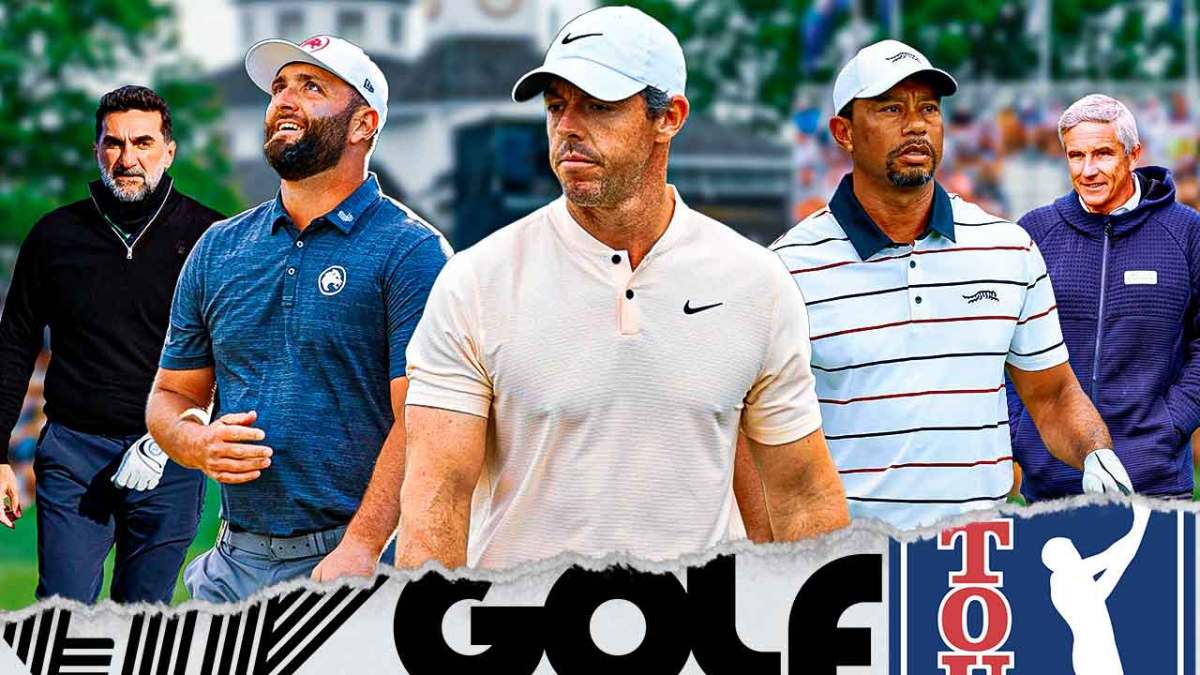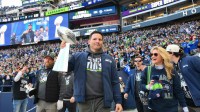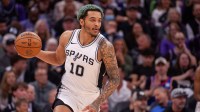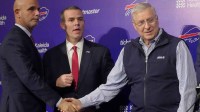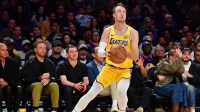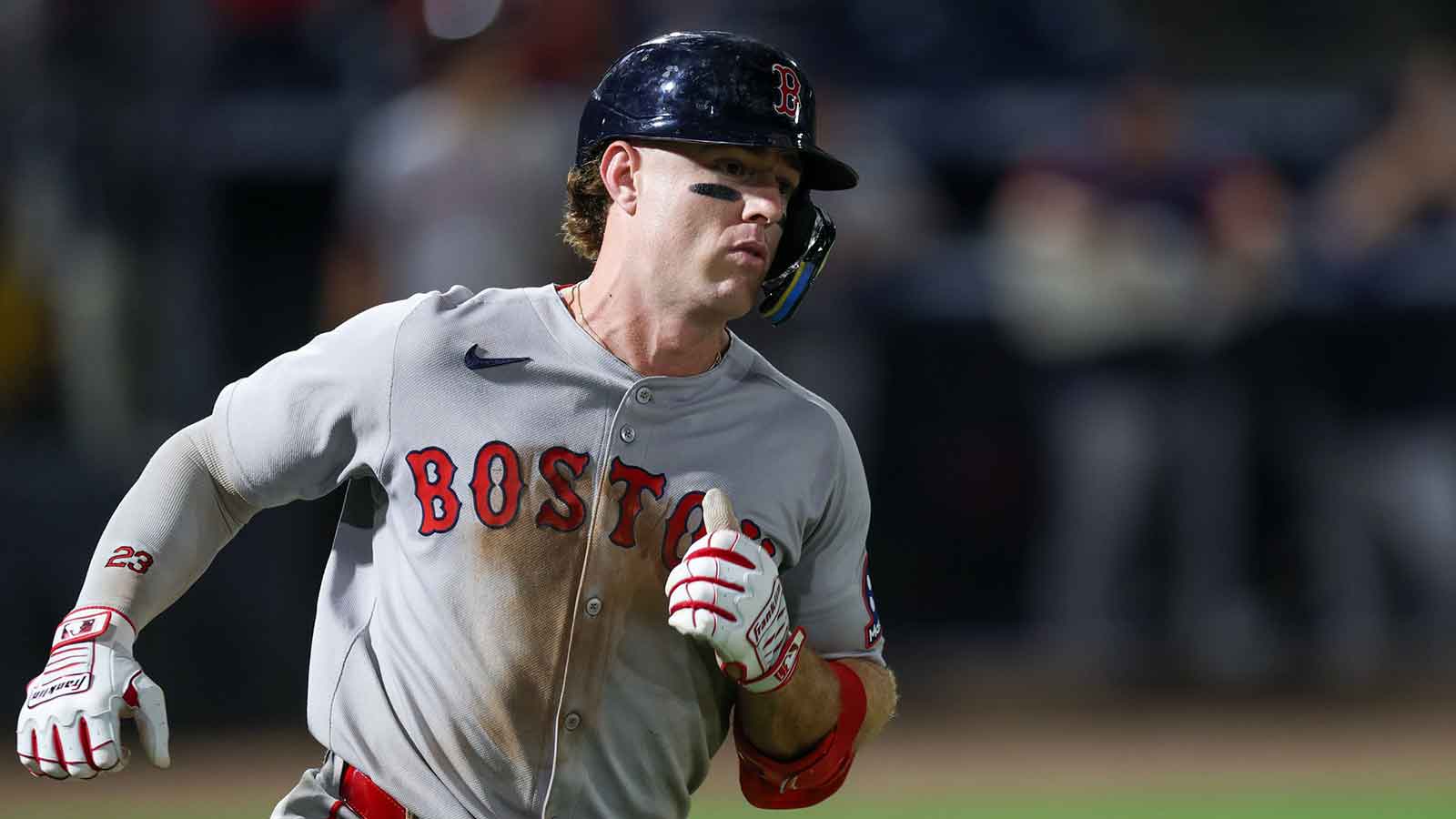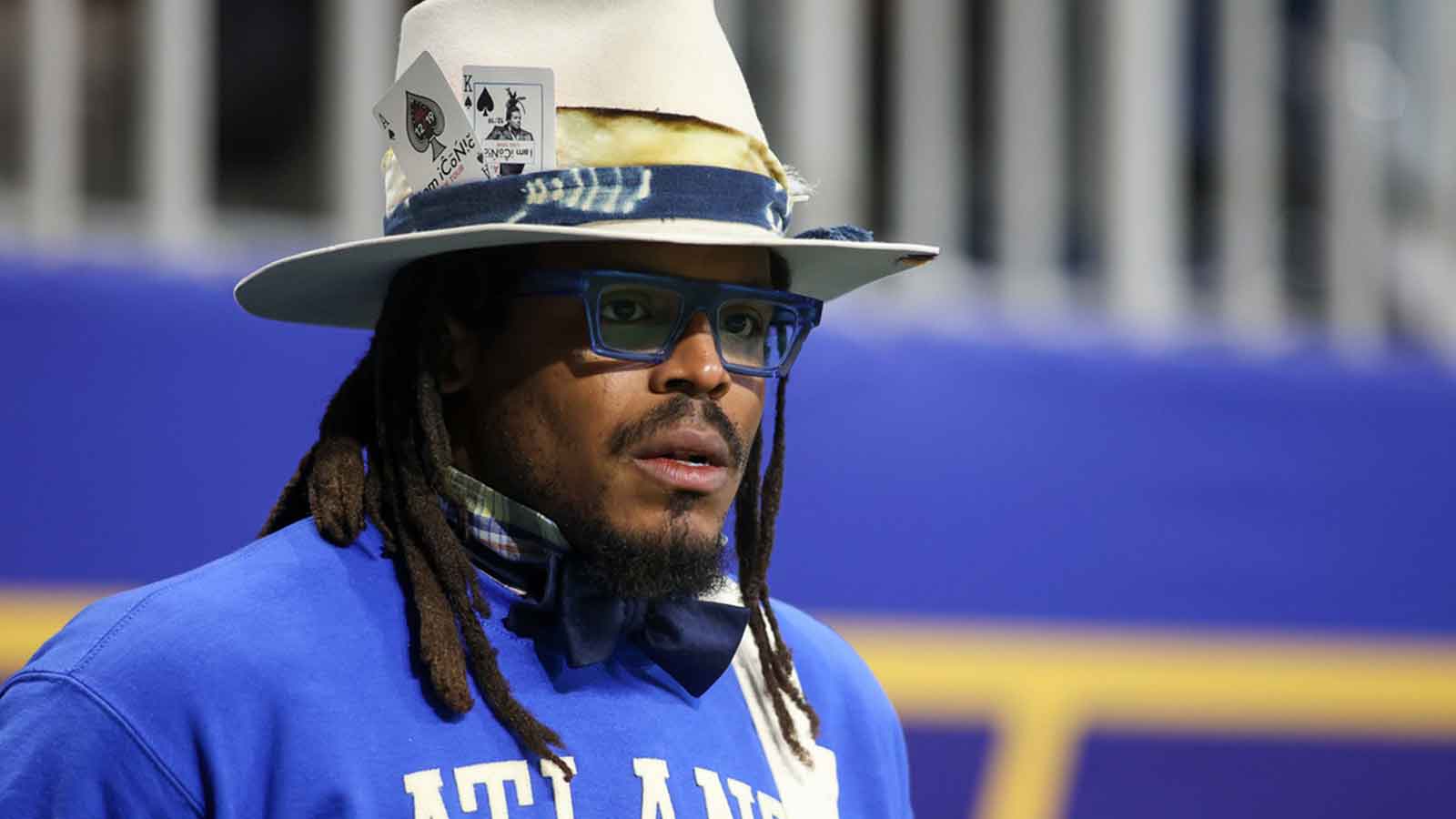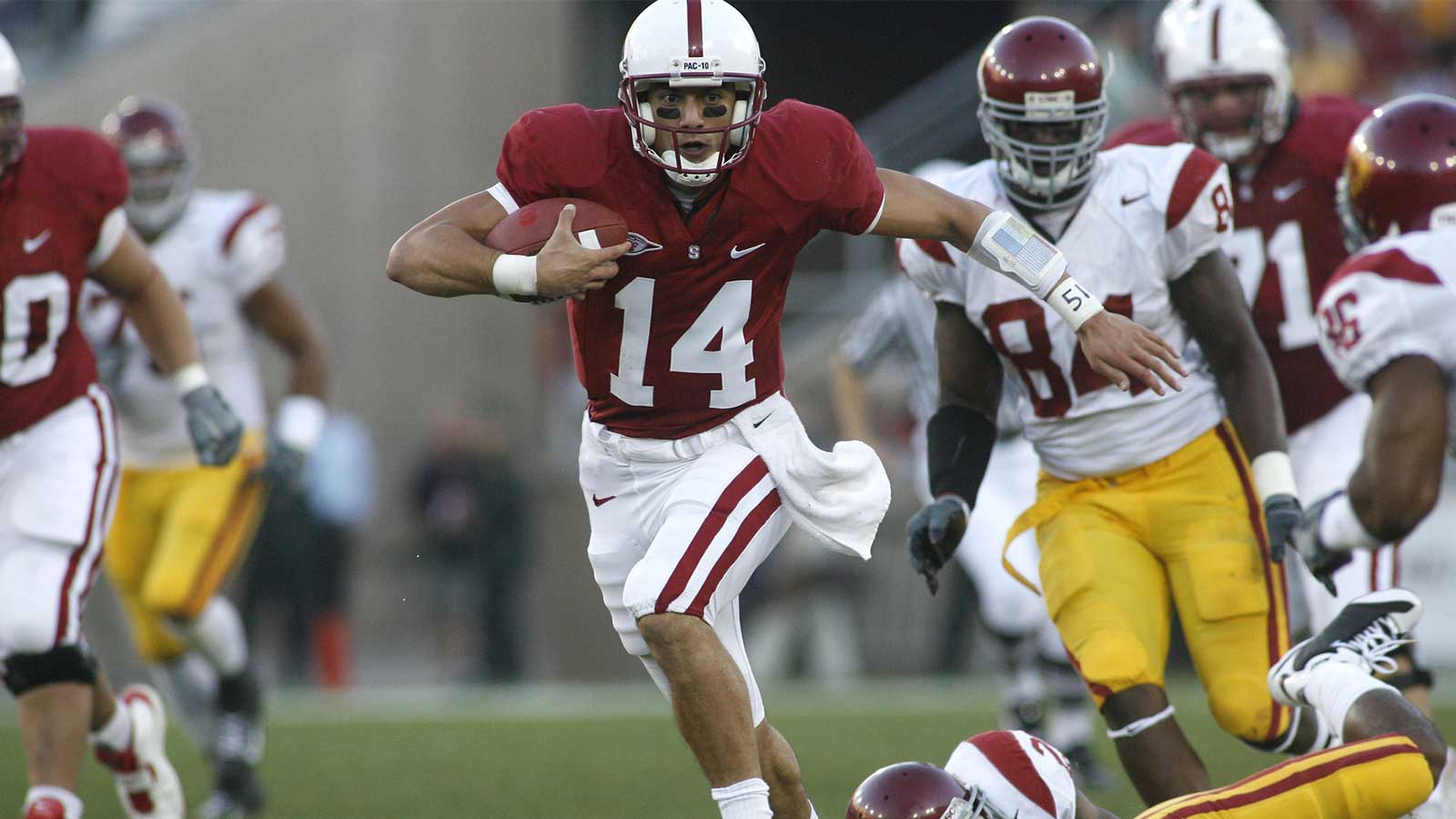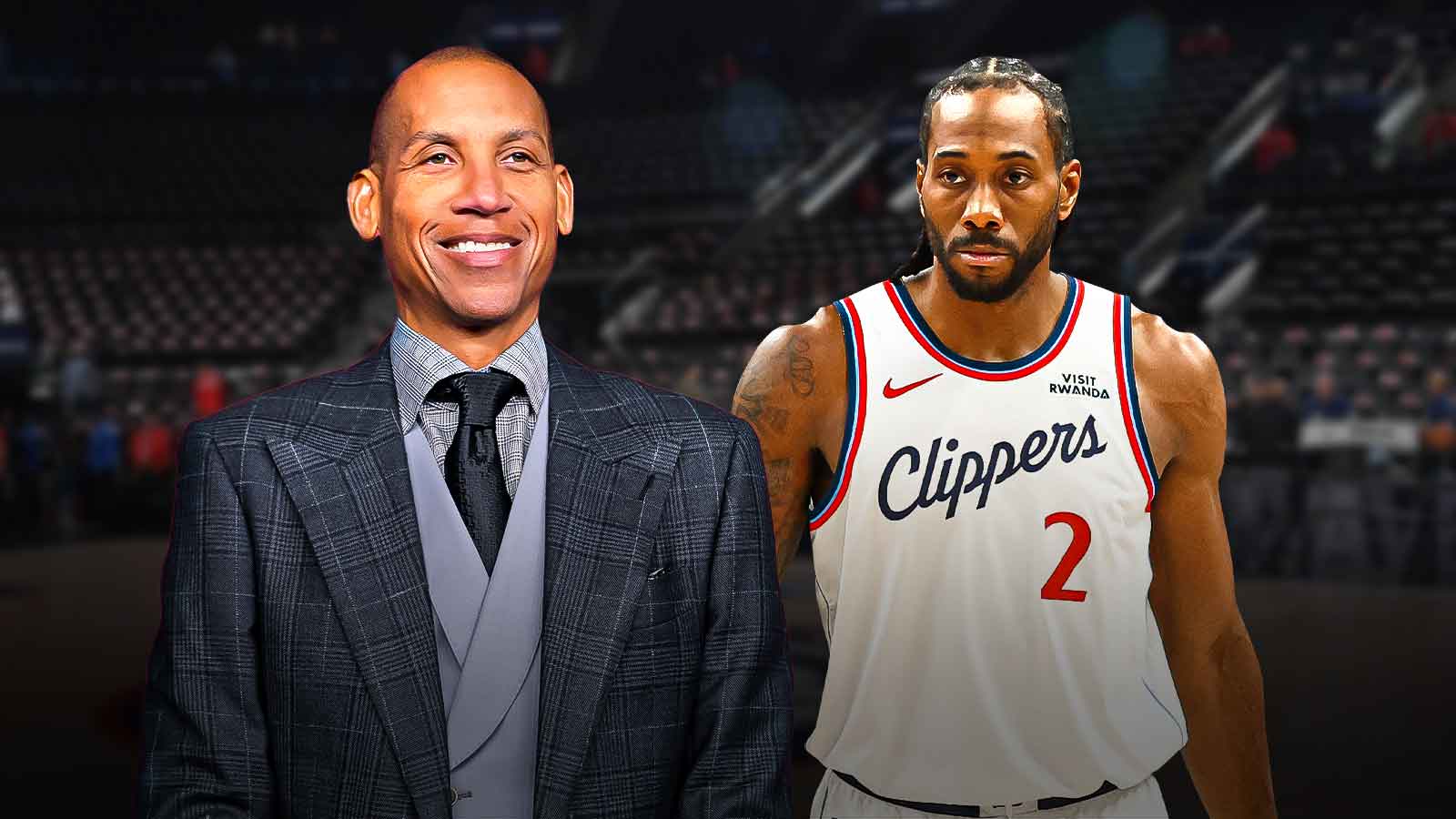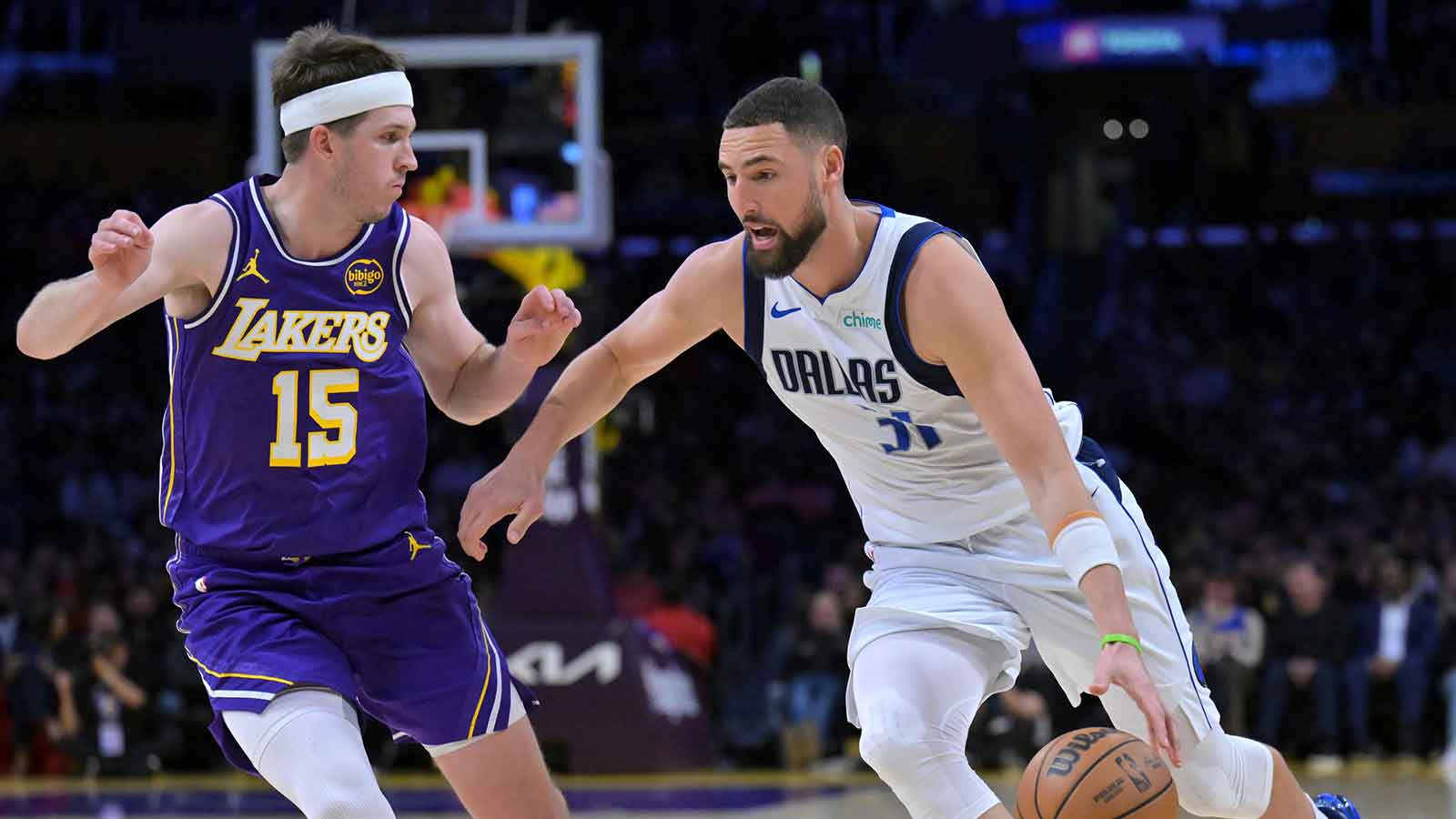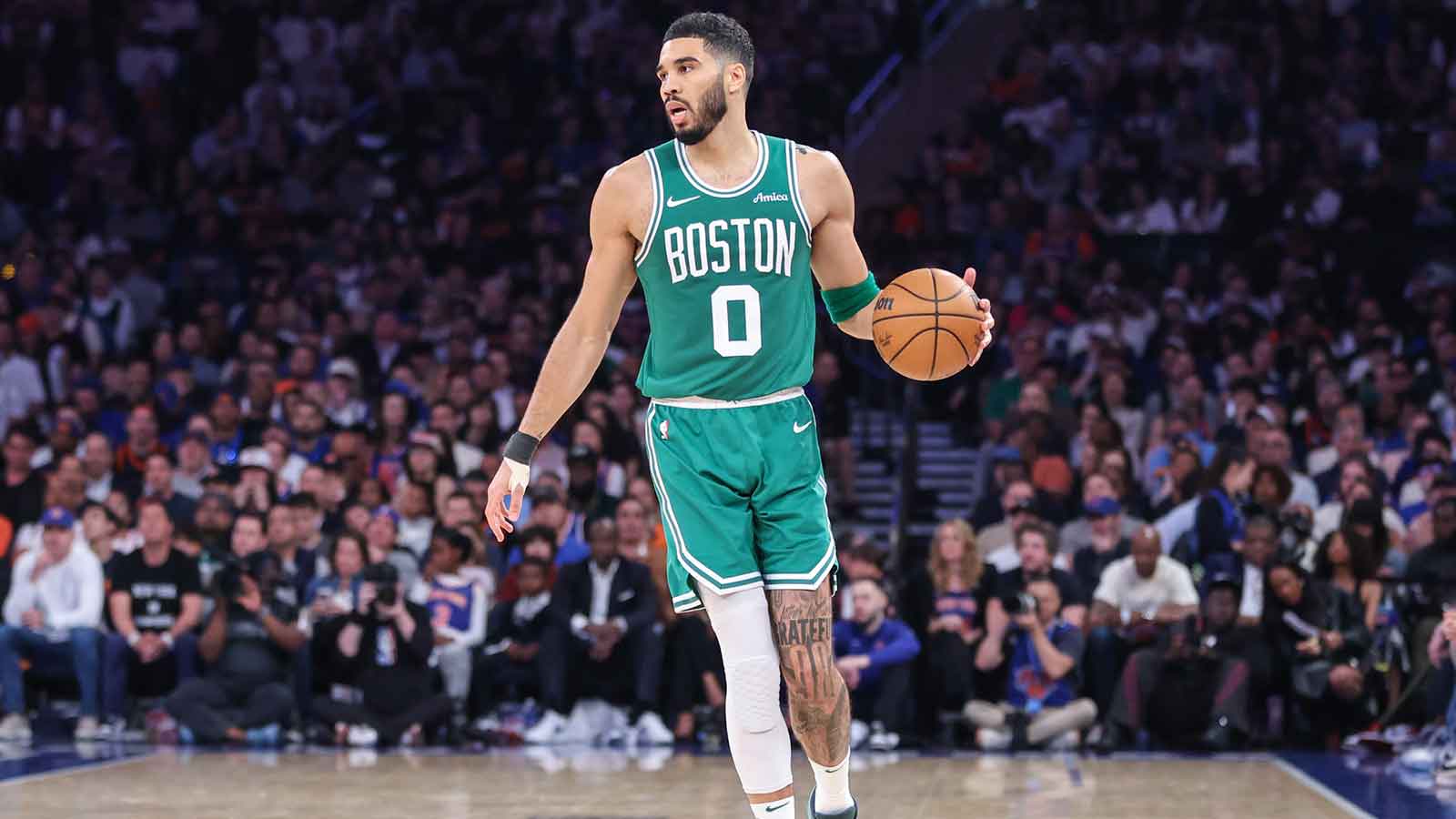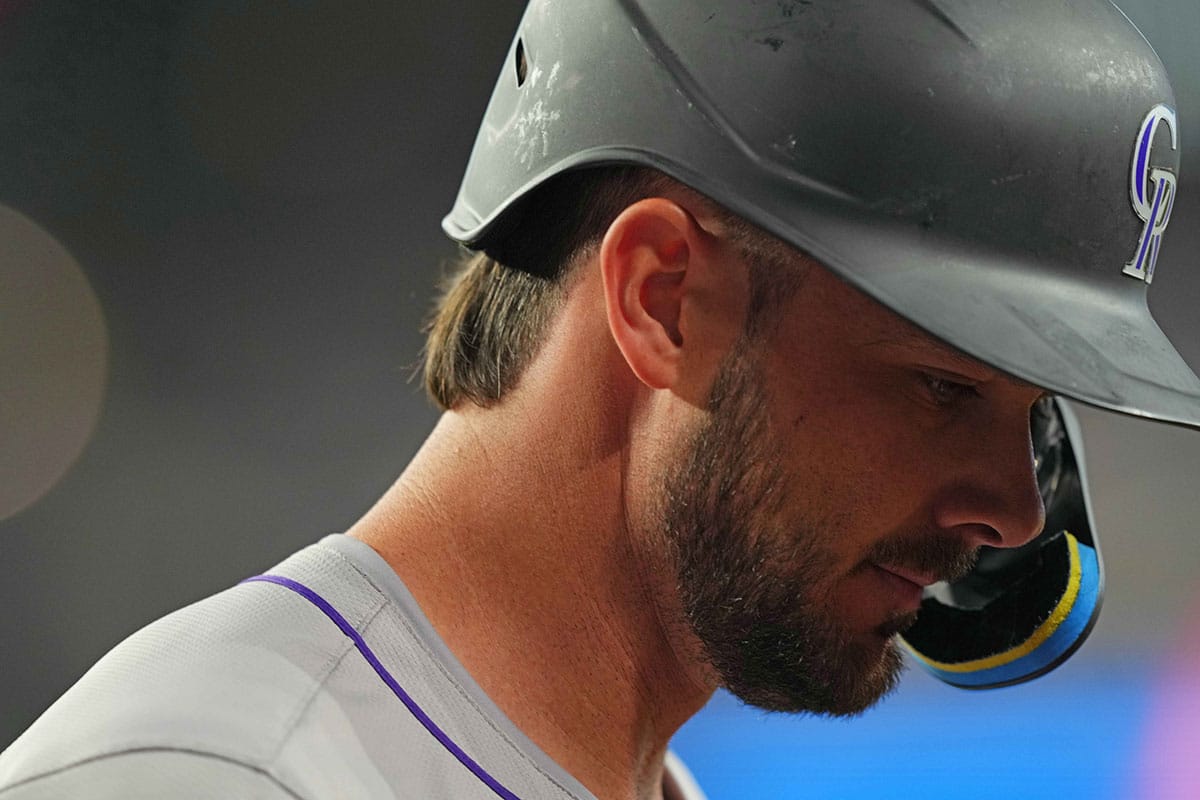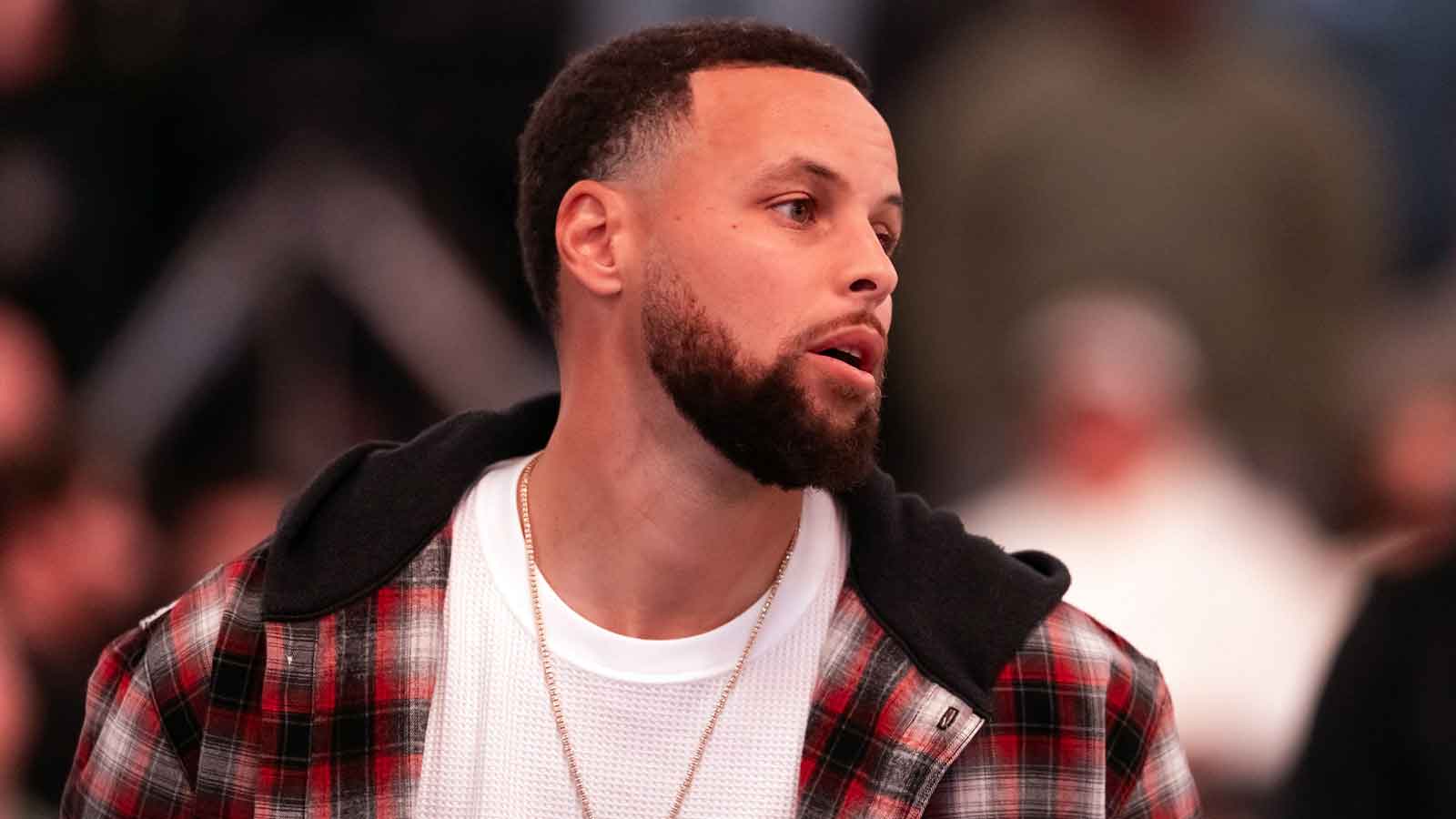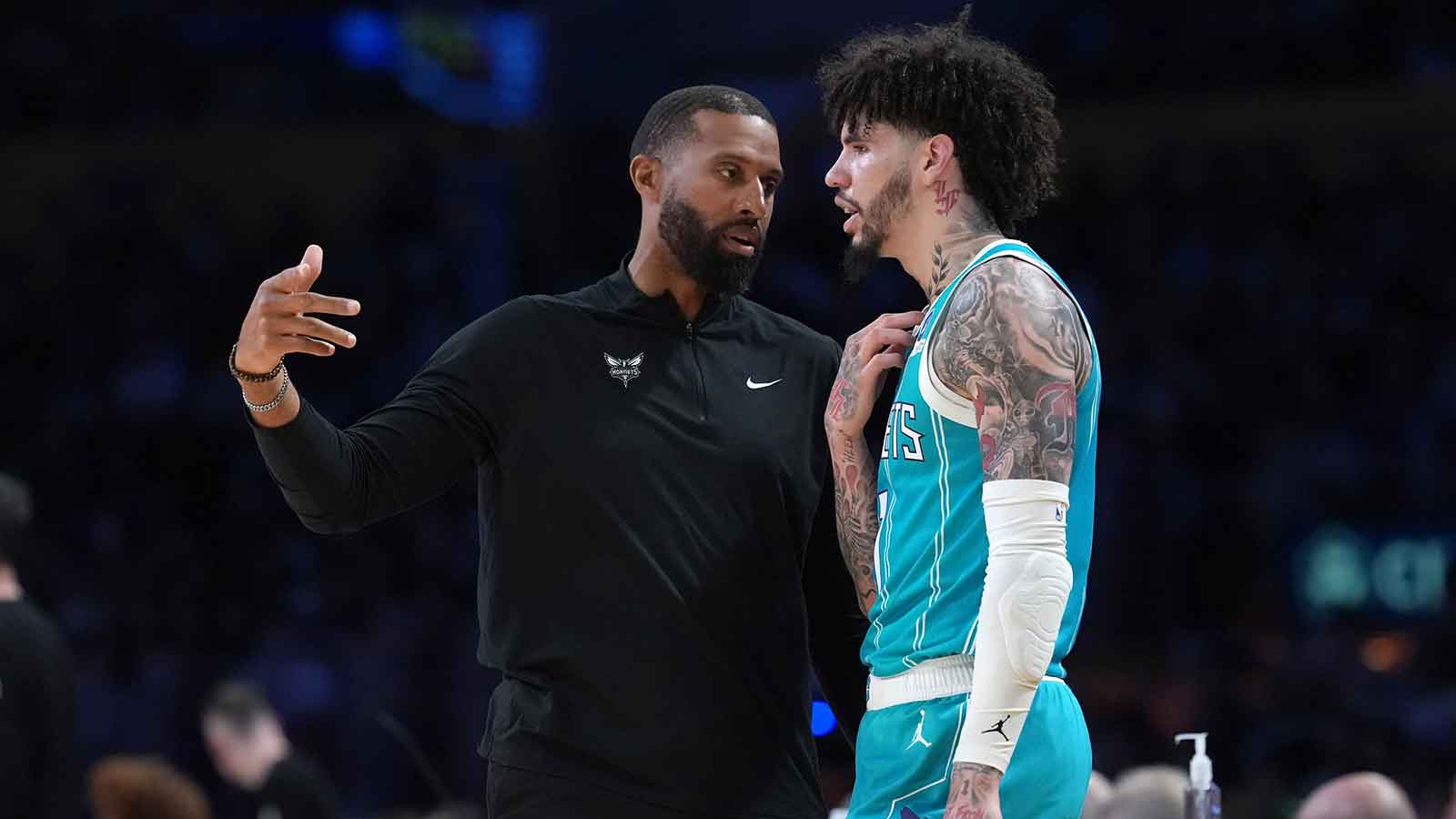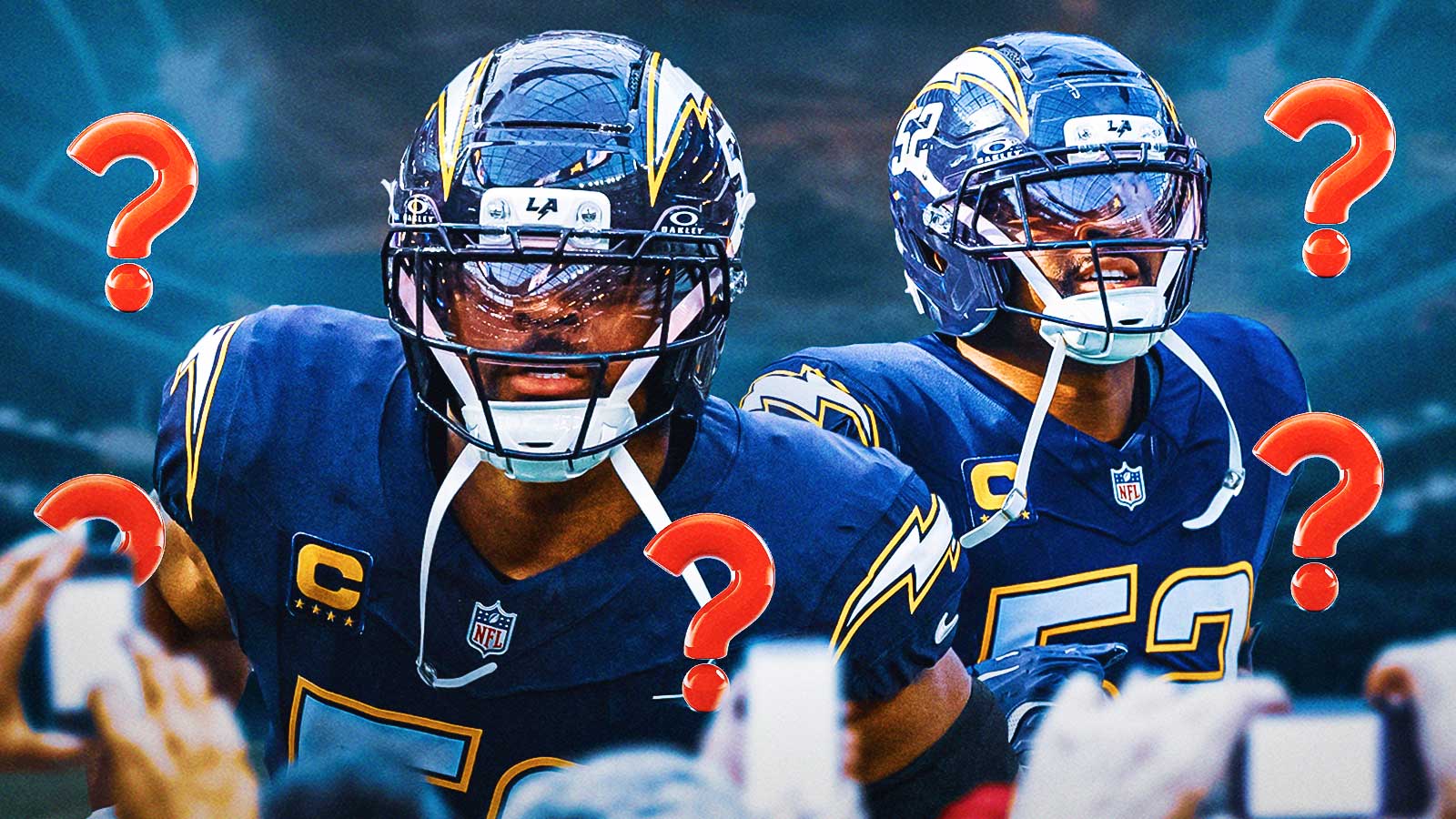One year ago today, PGA Tour commissioner Jay Monahan and chairman of LIV Golf League's backer, the Public Investment Fund (PIF), Yasir Al-Rumayyan, sent unforeseen ripples through the worlds of golf, business, and geopolitics with their announcement of a “framework agreement” to unify the splintered sport. “LIV Golf to merge with PGA TOUR,” a chyron read.
What a year it's been. If you're fortunate enough to have not followed the tick-tock — or lack thereof — of the negotiations, here's where we are one year later, in 10 steps. Happy anniversary!
PGA Tour – LIV Golf framework agreement, 1 year later
1. The announcement
Monahan spent two years imploring PGA Tour members to forego the “blood money” offered by the sovereign wealth fund — labeled by many as the latest example of “sportswashing” by Saudi Arabia.
However, Al-Rumayyan reportedly swayed Monahan to open negotiations and fully trust him 10 minutes into a lunch in Venice. The power brokers, and then-PGA Tour policy board member Jimmy Dunne, proceeded to negotiate in the shadows.
On June 6, Monahan and Al-Rumayyan squawked to CNBC's David Faber about their stunning partnership. The PGA Tour, LIV, and the DP World Tour would coexist, with PIF largely fronting the money and the PGA Tour retaining the majority of board seats on a new umbrella entity. Monahan would be CEO. .
The “definitive agreement” would be hashed out in “a matter of weeks,” claimed Al-Rumayyan, to Faber's immediate bemusement.
Two weeks later, Monahan temporarily left his post for health issues that he later admitted was related to work-induced anxiety.
“There’s been a lot of tension in our sport over the last couple years,” PGA Tour Commissioner Jay Monahan tells @davidfaber. “But what we’re talking about today is coming together to unify the game of golf.” https://t.co/Nz6LcMuIfq pic.twitter.com/D0h099HMuE
— CNBC (@CNBC) June 6, 2023
“As we've turned into 2023, we've just had tremendous momentum behind the @PGATour,” says PGA Tour Commissioner Jay Monahan. “The competitive integrity of the PGA Tour is extremely strong and that's reflected in the numbers.” pic.twitter.com/fi2A2oxrzg
— Squawk Box (@SquawkCNBC) March 10, 2023
2. Player reaction
LIV defectors, like Phil Mickelson, were pumped. A potential merger might allow them to mosey back onto the world's premiere golf tour devoid of fiscal consequence. By contrast, PGA Tour loyalists — many of whom learned of the agreement on social media — were decidedly not cool with that, on top of their ire about commissioner's hypocrisy.
McIlroy, the de factor anti-LIV spokesperson for the PGA Tour, said he felt like a “sacrificial lamb.”
“I still hate LIV” Rory McIlroy did not hold back on LIV Golf while explaining that the merger could ultimately be good for golf. pic.twitter.com/Wf0q5mrFqc
— TSN (@TSN_Sports) June 7, 2023
3. “Deadline”
Eventually, the sides set a deadline for Dec. 31, 2023 to finalize an agreement.
In the meantime, the Congress began holding hearings to scrutinize — and inevitably delay — the arrangement. Monahan was reportedly asked to resign in December.
4. Rory McIlroy steps down
In November, McIlroy stepped down from the PGA Tour policy board, citing a preference to refocus on golf (see: his Full Swing episode). Jordan Spieth assumed his spot.
After spending time with Al-Rumayyan (more than 10 minutes), McIlroy began to change his tune. Throughout this year, he's repeatedly articulated a desire to reach a resolution, articulating a vision that unites golf under PGA Tour operations, accepts PIF financial security, and enables defectors to rejoin the tour without incurring penalties.
Scottie Scheffler, Jordan Spieth, and Justin Thomas disagreed with that last part.
5. Jon Rahm grabs the LIV bag
All had been quiet on the defection front. No major star had jumped from the PGA Tour to LIV Golf in months. Then, in December, Rahm, arguably the second-best player in the world and the defending Masters champion, accepted $350 million or so to join the Saudi circuit.
Rahm has essentially acknowledged that he caved because he thought a deal was impending. He thought he could stick it out with LIV for a short time in exchange for an unearthly amount of generational wealth, while the PR hit would be mitigated by the framework agreement. He'd be back at Riviera, and TPC Sawgrass in no time. Whoops.
Rahm has contended in a few LIV events. His two major appearances, though, have been defined by comments indicating regret for his move, compounded by sloppy golf and obvious frustration.
Rahm is the starkest victim of the fractured sport. He's the best possible competitive foil to Scheffler who deeply appreciates the history and tradition of the PGA Tour. And yet, he's utterly irrelevant, playing for Legion XIII.
6. PGA Tour raises money
In January, the PGA Tour retained leverage by soliciting an investment of upwards or $3 billion from a newly-created consortium of American sports owners — including Atlanta Falcons owner Arthur Blank and Boston Red Sox owner John Henry — Strategic Sports Group (SSG).
The PGA Tour formulated a for-profit branch tasked with growing and marketing the sport, PGA Tour Enterprises. Tiger Woods was named vice president. LeBron James and Drake were among the celebrity investors.
“I was like, ‘Oh, you're joining the good sport', obviously joking,” Lakers guard and golf sicko Austin Reaves told me. “And he was like, ‘Yeah, we're basically just trying to grow the game.’ He was like, ‘However I could be in assistance of helping the PGA Tour.’ I think what he said was the problem was not all the good players were playing in the big tournaments, and that was kind of the focal point of everything.”
7. Diluted products
Simultaneously, the PGA Tour may have lost some leverage with its weakened product.
The first two months of the season were notable for underwhelming star performance and unheralded winners. Ratings have continued to sag, even through the majors and exciting performances from stars like Scheffler, McIlroy, and Xander Schauffele.
“If you look at the TV ratings of the PGA Tour this year, they’re down 20 percent across the board. That’s a fifth. That’s big… 20 percent’s a pretty jarring number.” McIlroy said in early April.
It's hard to gauge LIV's popularity due to a lack of data and media rights deals, but its impossible to deem LIV's third season a smashing success — especially in the United States. A couple international stops, where the team aspects engender a Ryder Cup-style vibe, have been the exception. (LIV even brought Anthony Kim out of anonymity in a move that reeked of desperation. Happy for AK, though!)
On the course, outside of crowd-pleasing showings from Bryson DeChambeau at Augusta and Valhalla, LIV players have struggled in both the majors and U.S. Open qualifying.
“I would say the numbers on LIV aren’t great either in terms of the people tuning in,” added McIlroy. “I just think with the fighting and everything that’s gone on over the past couple of years, people are just getting really fatigued from it. It’s turning people off men’s professional golf, and that’s not a good thing for anyone.”
9. Bahamas gathering
A couple weeks before the Masters, Yasir Al-Rumayyan and Tiger Woods finally got in the same room. They reportedly golfed in Albany, and engaged in a “constructive” meeting with Monahan, PGA Tour player directors, and SSG reps. The commissioner said talks with PIF were “accelerating” but a deal remained a “ways away.”
10. Policy board drama
At some point in recent months, Webb Simpson requested to step down from the policy board, with the caveat that McIlroy reclaim his spot. The thinking was: Rory's relationships with Yasir, etc. would help steer along the next phase of negotiations.
Around the Wells Fargo Championship (which McIlroy won), Rory's return was rebuffed before an official vote went down. Monahan and policy board member Adam Scott chalked it up to “process.” McIlroy indicated that certain folks on the board — namely Tiger, Spieth and Cantlay — have a different vision for the PGA Tour: one that thrives sans the Saudis.
One week later, Jimmy Dunne and Mike Flanaghan stepped down from the policy board, citing a lack of progress. McIlroy voiced pessimism about the state of talks.
“Honestly I think it's a huge loss for the PGA Tour if they're trying to get this deal done with the PIF and trying to unify the game,” McIlroy said in the wake of Dunne's departure.
A Transaction Subcommittee was created, featuring McIlroy, Tiger, and Monahan, supposedly focused on PIF discussions.
🚨👀💣 #NEW: Xander Schauffele is teeing off on PGA TOUR commissioner Jay Monahan’s lack of leadership with explosive new quotes: “What I can say is that throughout all of this turmoil, what’s probably bothered me the most — now more than ever — is that we need someone to lead… pic.twitter.com/02w0srSBKy
— NUCLR GOLF (@NUCLRGOLF) June 4, 2024
Before last week's RBC Canadian Open, Scott claimed negotiations are “moving along as quickly as they can” and would “heat up very soon.” He also said the “ice” had yet to be broken.
On Wednesday, at Muirfield Village, McIlroy suggested a resolution may come in … 2026.

